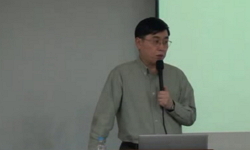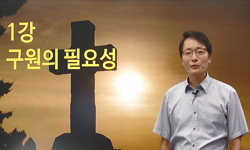The 1930s is an age of watching dynamic possibility in the history of Korean modern literature. Kim Hyeon Seung(1913∼1975) made his literary debut in the 1930s and uniquely constructed his poetic world until the mid-1970s. Kim Hyeon Seung”s poetic...
http://chineseinput.net/에서 pinyin(병음)방식으로 중국어를 변환할 수 있습니다.
변환된 중국어를 복사하여 사용하시면 됩니다.
- 中文 을 입력하시려면 zhongwen을 입력하시고 space를누르시면됩니다.
- 北京 을 입력하시려면 beijing을 입력하시고 space를 누르시면 됩니다.
https://www.riss.kr/link?id=A100238098
- 저자
- 발행기관
- 학술지명
- 권호사항
-
발행연도
2014
-
작성언어
-
-
주제어
김현승 ; 윤리성 ; 고독 ; 양심 ; 신앙 ; 구원 ; 무기 ; Kim Hyeon Seung ; The ethics of sex ; Solitude ; Conscience ; Faith ; Salvation
-
KDC
800
-
등재정보
KCI등재
-
자료형태
학술저널
- 발행기관 URL
-
수록면
581-605(25쪽)
- 제공처
- 소장기관
-
0
상세조회 -
0
다운로드
부가정보
다국어 초록 (Multilingual Abstract)
The 1930s is an age of watching dynamic possibility in the history of Korean modern literature. Kim Hyeon Seung(1913∼1975) made his literary debut in the 1930s and uniquely constructed his poetic world until the mid-1970s. Kim Hyeon Seung”s poetic world sublimes the matter of “loneliness” into a poem based on ethics and his belief and will clarifies “conscience” as human suffering and mental value. The ethics is originated from inner-centered imagination, advocates the human mind in the human level, and helps us recognize the principle of loneliness newly. He, therefore, intends to realize social justice as poetry”s social ideal and the social justice is associated with the process of enjoying human life and realizing human essence. Then, it shows the implication of “conscience” for the realization of social justice and inner “loneliness” to enjoy human life. The inquiry into the “loneliness” is an expression of fighter”s will to grasp irrational reality of history correctly and protect justice. One are not confined within themselves, but reach the essential world of human being as a passage of salvation that can be solidified with others through “loneliness”. “Conscience” as the sound of existence works as a passage where faith and conscience coexists in loneliness and to mediate the world of god and the world of human being. His “lonely conscience” functions as moral and ethical check to overcome human”s instinctive desire. Conscience is a fundamental principle to regulate ethical behaviors and forms the ethics of social self after passing through a loneliness meter. Moreover, “loneliness” as the sound of conscience is the coexistence of will toward sanctity and “conscience” toward freedom. Kim Hyeon Seung”s loneliness is an active act to recover the essence of human beings alienated from faith, is human loneliness that conflicts in the boundary between god and human being, and proves ethics through inner loneliness to prepare transcendental experience, the strongest and purest stage. “Conscience” revealed from this, especially loneliness reaching through loneliness, represents the will of solidarity between people who desire social justice for human life. “Loneliness” and “conscience” is power leading oneself as a countermeasure of the age dominated by the conscienceless and arms to live the present lilfe.
참고문헌 (Reference)
1 박이문, "현상학과 분석철학" 지와 사랑 : 103 ~, 2007
2 최동호, "한국현대시의 정신사" 열음사 : 9 ~ 11, 1985
3 권영민, "한국현대문학사1945∼2000" 민음사 : 172 ~ 173, 2011
4 김윤식, "한국현대문학사" 현대문학 : 279 ~, 1989
5 S. Kierkegaard, "죽음에 이르는 병" 학일출판사 : 67 ~ 336, 1994
6 김현승, "절대고독" 성문각, 1970
7 Alain Badiou, "윤리학" 동문선 : 7 ~ 15, 2001
8 김현승, "옹호자의 노래" 선명출판사, 1963
9 김주연, "아도르노의 문화사회학" 민음사 : 189 ~, 1979
10 박두진, "시적 번뇌와 시적 목마름" 신원출판사 : 86 ~, 1996
1 박이문, "현상학과 분석철학" 지와 사랑 : 103 ~, 2007
2 최동호, "한국현대시의 정신사" 열음사 : 9 ~ 11, 1985
3 권영민, "한국현대문학사1945∼2000" 민음사 : 172 ~ 173, 2011
4 김윤식, "한국현대문학사" 현대문학 : 279 ~, 1989
5 S. Kierkegaard, "죽음에 이르는 병" 학일출판사 : 67 ~ 336, 1994
6 김현승, "절대고독" 성문각, 1970
7 Alain Badiou, "윤리학" 동문선 : 7 ~ 15, 2001
8 김현승, "옹호자의 노래" 선명출판사, 1963
9 김주연, "아도르노의 문화사회학" 민음사 : 189 ~, 1979
10 박두진, "시적 번뇌와 시적 목마름" 신원출판사 : 86 ~, 1996
11 박두진, "시와 사랑" 신흥출판사 : 163 ~, 1960
12 Emmanuel Levinas, "시간과 타자" 문예출판사 : 51 ~ 52, 1996
13 정문길, "소외론 연구" 문학과 지성사 : 20 ~, 1979
14 김응교, "박두진의 상상력 연구" 박이정 : 163 ~, 2004
15 곽광수, "바슐라르 연구" 민음사 : 25 ~, 1981
16 문덕수, "문학일반의 이해" 시문학사 : 153 ~,
17 이승훈, "문학상징사전" 고려원 : 224 ~, 1998
18 Jacques Lacan, "라캉의 욕망이론" 문예출판사 : 19 ~, 1994
19 김현승, "김현승 전집1. 2. 3" 시인사, 1985
20 김현승, "김현승 시초" 문학사상사, 1957
21 김인섭, "김현승 시의 의식세계" 숭실어문 12 : 366 ~, 1995
22 Gaston Bachelard, "공간의 시학" 동문선 : 8 ~ 83, 2003
23 김현승, "고독과 시" 지식산업사, 1977
24 김현승, "견고한 고독" 관동출판사, 1968
동일학술지(권/호) 다른 논문
-
- 한민족어문학회
- 권도경 ( Do Kyung Kwon )
- 2014
- KCI등재
-
『젊은 그들』의 역사 내러티브 전략과 민족 담론의 양상
- 한민족어문학회
- 김경미 ( Kyung Mi Kim )
- 2014
- KCI등재
-
- 한민족어문학회
- 류희식 ( Hee Sik Ryu )
- 2014
- KCI등재
-
- 한민족어문학회
- 손미영 ( Mi Yeong Son )
- 2014
- KCI등재





 KISS
KISS







